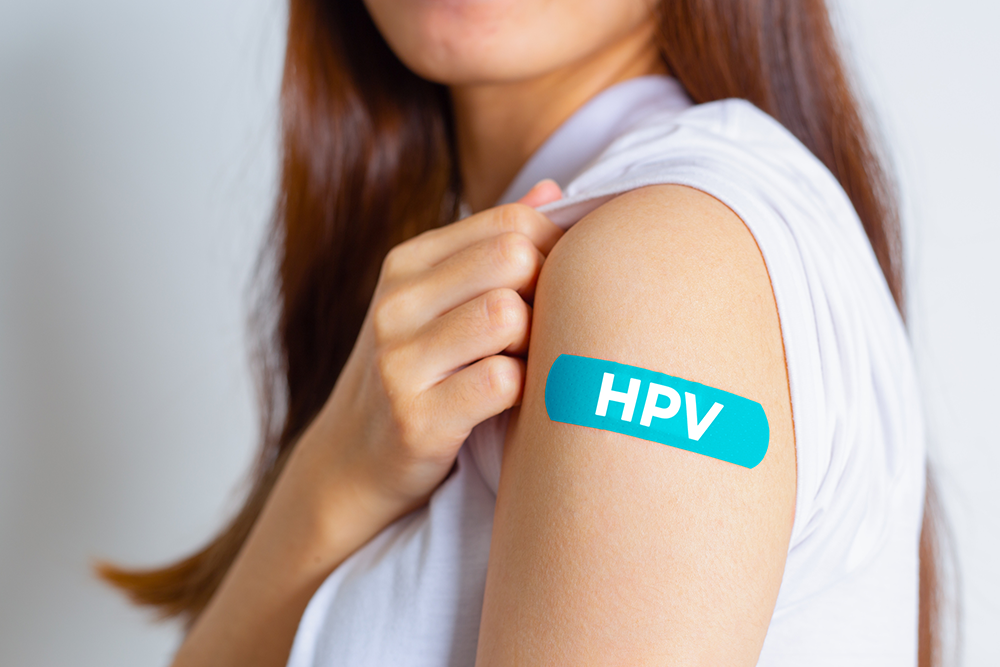Human papillomavirus (HPV) is a sexually transmitted infection that is spread through intimate, skin-to-skin contact. HPV comprises a group of more than 150 related viruses that thrive in the cells found on the skin’s surface or other moist (mucosal) surfaces. Some HPV types cause common skin warts or low-risk genital warts. Other HPV types are considered high-risk because they are more likely to cause cancerous changes over time.
Most HPV infections clear on their own. However, in some cases, the body’s immune system cannot fight the infection. Chronic infection from a high-risk HPV type can progress to precancer or cancer of the vagina, vulva, penis, anus, or throat. It is also the leading cause of cervical cancer. Each year, approximately 11,000 women in the US are diagnosed with cervical cancer caused by HPV, and more than 200,000 women are diagnosed with cervical precancer from the same.
The good news is that HPV vaccinations can prevent over 90% of the cervical cancers HPV causes.
What is the vaccine, and who should get it?
Gardasil®9 is the only FDA-approved HPV vaccine in the United States. It protects against 9 HPV types, including HPV-16 and 18, which cause the highest number of cervical cancers and precancers.
The American Cancer Society recommends the following groups get vaccinated:
- Males and females between the ages of 9 and 12 should receive two doses
- Teens and young adults between 13 and 26 who have not previously been vaccinated for HPV or who did not receive all their doses
Health officials advocate for early vaccination because research shows that preteens and teens have a better immune response to the vaccine. Additionally, the vaccine prevents the covered HPV types only if they are given before an individual is exposed to them. The vaccine is not a treatment for an existing infection. It can, however, protect you from developing other types of HPV.
While vaccinations are not generally recommended for those older than 26, some adults 27 through 45 may decide to receive the vaccination. It is important to speak with your provider about the risks versus the benefits of receiving a vaccination at a later age when it is less effective.
Who should NOT get the vaccine?
- Pregnant women
- Individuals with a severe yeast allergy
- Anyone who has had a life-threatening reaction to any other ingredient in the vaccine
- Those who had a severe, adverse reaction to their first HPV vaccine dose
If I have been vaccinated, do I need to continue screening?
The HPV vaccination protects against most but not all the HPV types that can cause cervical cancer, so it is essential to maintain regular cancer screenings.
Several screening types can detect cervical abnormalities. The Pap smear looks for cell changes that might develop into cervical cancer. The HPV test looks for the virus DNA that can cause cancer. HPV testing done simultaneously with your Pap test is called co-testing.
The American Cancer Society’s recommended screening guidelines for cervical cancer are as follows:
Cervical cancer testing should begin at 25.
Patients 25-65:
- Patients should have a primary HPV test every five years, or
- HPV/PAP co-test every five years, or
- PAP test every three years
Patients 65 and older:
- No screening needed if a series of prior tests within the previous ten years had normal results
Anyone who has had a total hysterectomy (removal of the uterus and cervix) does not need a Pap or HPV test unless cervical cancer or precancer was the reason a hysterectomy was necessary.
Preventative screening guidelines are advised for individuals based on their sex assigned at birth. If a person has had surgical reassignment, they should discuss screening guidelines with their doctor.
Though HPV is a leading cause of cervical cancer, other risk factors include family history, HIV infection, and smoking. Learn more about cervical cancer risk factors, symptoms, and treatments.




